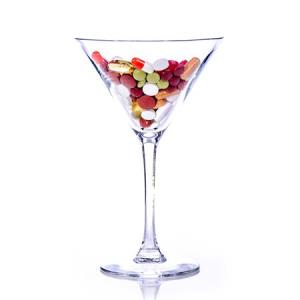Daily supplementation with melatonin, zinc, and multivitamins cuts the duration of COVID-19 or COVID-19-like symptoms, thus supplementing the COVID-19 treatment armamentarium, a study has shown.
“Among nonhospitalized patients presenting to the emergency department with COVID-19 and COVID-19-like illness, daily doses of melatonin, zinc, and multivitamins significantly reduced the duration of symptoms, accelerating its disappearance without developing complications or necessitating hospitalization or experiencing adverse events (AEs),” said the researchers.
By day 5, nearly half (49 percent) of the patients on supplements were symptom-free. Whereas in the placebo arm, only a third were able to achieve this outcome. A comparison between arms generated a p-value of 0.041. [Explore (NY) 2024;20:95-100]
By day 10, 80 percent of patients in the supplement arm experienced complete recovery, as opposed to only 67 percent in the placebo arm (p=0.038).
Day 15 still saw more symptom-free participants in the supplement vs the placebo arm (93 percent vs 83 percent; p=0.05).
No participant required hospitalization or ventilation. The supplements were well-tolerated, with no severe AEs reported throughout the trial, said the researchers.
Melatonin, zinc, multivitamins: Why this combo?
Vaccines are not widely accessible in low-income countries. Moreover, their efficacy wanes over time and may be compromised as new COVID-19 virus lineages emerge. [Lancet 2022;399:924-944] “[Thus,] there remains an unmet need for simple, accessible, low-cost, harmless, and effective pharmacological agents [against COVID-19],” said the researchers.
Individuals resort to a cocktail of supplements with reported antiviral and immunomodulatory activities as preventive measure or during the early stages of contracting the infection. [Drugs Ther Perspect 2020;36:565-567]
Melatonin is considered a powerful antioxidant and anti-inflammatory and has been reported to prevent a potential cytokine storm and other severe symptoms that may arise following a viral invasion. [Biomolecules 2020;10:1211; Mol Biol Rep 2022;49:4061-4068] Zinc upregulates expression of metallothioneins, which consequently exerts numerous antioxidant and antiviral effects. [J Viral Hepat 2018;25:491-501] The ability of vitamins (especially vitamins C and D) to decrease pro-inflammatory cytokine levels may help in the treatment of viral infections. [Maturitas 2021;143:1-9]
However, these supplements have not been proven to be very effective if taken separately, the researchers noted. “This led us to test their effectiveness when they are co-used.”
They randomized 164 participants 1:1 to either the supplement or the placebo arm. Participants in the supplement arm (n=82; mean age 35.6 years, 61 percent women) were given two pills (multivitamin* pill and zinc 25 mg) to be taken in the morning. A 2-mg melatonin pill was to be taken at night.
“Overall, melatonin, zinc, and multivitamins share similarities, as they exert effects on several immune-cell types and modulate inflammatory reaction. They have a synergistic action for the treatment COVID-19 and COVID-like illness,” said the researchers.
“[Hence,] this new potential therapeutic choice would be of great help to physicians as it presents an available low-cost and effective treatment especially in low-income countries,” they added.
However, there are limitations that should be taken into context, the researchers noted. Apart from the small sample size and short follow-up duration, the investigators failed to explore the mechanisms that could explain for the benefits of these supplements and to measure biomarkers of inflammation, coagulation, and cardiac and renal injures.
“[T]he short follow-up time may hide late side effects. The lack of patients with comorbidities or significant disease makes it difficult to generalize the results … In addition, the relative contributions of each active ingredient remain unknown,” they noted.
Further studies are thus warranted to better understand the efficacy and tolerability of these supplements in this setting.

